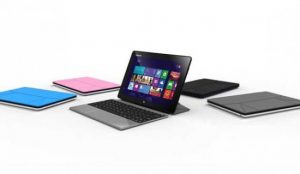With the announcement of so many tablets in CES 2013, most common question in the mind of people are: Whats after the tablet in 2013.
Everyone who followed the Consumers Electronics Show 2013 saw the unveiling of new tablets such as Vizio, Archos and Huawei Ascend D2. With so many tablets being announced by different companies, people are starting to wonder about the ‘next innovation’ that will take place in consumer and enterprise technology. Considering all the developments and announcements that have taken place lately, here is what the future looks like for the computer field: 
1. People will be the User Interface
Voice and gesture based technologies are being introduced from companies like Intel and General Motors. Eye recognition technology was on display at the press event held by Intel, while 3D sensing technology that determines the things consumers inspect was demonstrated by PrimeSense, the maker of Microsoft Kinect’s camera technology. Microsoft Kinect’s slogan of ‘you are the controller’ may see more innovation with time.
2. Flexible Displays
These are screens that can be flexed at different angles. Samsung displayed flexible OLED display technology showing bendable tablets and curved smartphone prototypes. The PaperTab tablet was revealed by Paper Logic Inc. at CES 2013, with an interactive touchscreen. It feels like a thin sheet or paper, including a high resolution plastic display of 10.7 inches. The screens purported to take form of consumer devices soon, such as folding Galaxy Phones and iPads.
3. Sensors will make Devices More Smarter
The word ‘smart’ will be given a whole new meaning. Consumer devices would be able to detect the tastes and location of the user. Accelerometers with motion-sensors such as eye-trackers will be featured in handheld devices. The next-generation Android and Apple tablets are expected to include the latest sensors. Google Glass has been rumored to include a virtual laser keyboard that will allow consumers to input commands on their own hands, just like using a mouse on a computer.
4. 4K Technology on Devices
4K technology was announced by more than one company. Panasonic unveiled a tablet with a 20-inch display with this technology aimed specifically at businesses. OLED 4k Ultra-HD displays have also been demonstrated. This technology is likely to arrive in smartphones and other devices, making HD resolutions four times better compared to the current standards.
Tablets are a Part of the Future
However, tablets themselves have a role to play in the future as more people adapt to their use in daily life, including children. Improvements in battery life would make them last from days to weeks and even months, tempting people to replace books and magazines with this convenient technology.
Apple has had major dominant in the tablet market, but Android and tablets from other companies are slowly catching up as tablet computing rises. The ASUS Nexus 7 recently went past the iPad and iPad Mini to become the best-selling tablet in Japan, while Amazon’s Kindle Fire is enjoying some decent progress. Microsoft’s Surface tablets also brought something new to the table.
The tablets are also driving enterprise and consumer app development, creating new employment opportunities all around. No wonder people are switching from web-development to app development. The demand for app developers has grown, with sites like Elance reporting an astonishing increase. This has led to an increase in demand for specialized degree programs found in an college IT course list, which can also be taken remotely from any location through online degree colleges.
Tablet app development is one of the biggest skill gaps realized in IT development, and it’s providing a great opportunity for a sustainable growing career.

